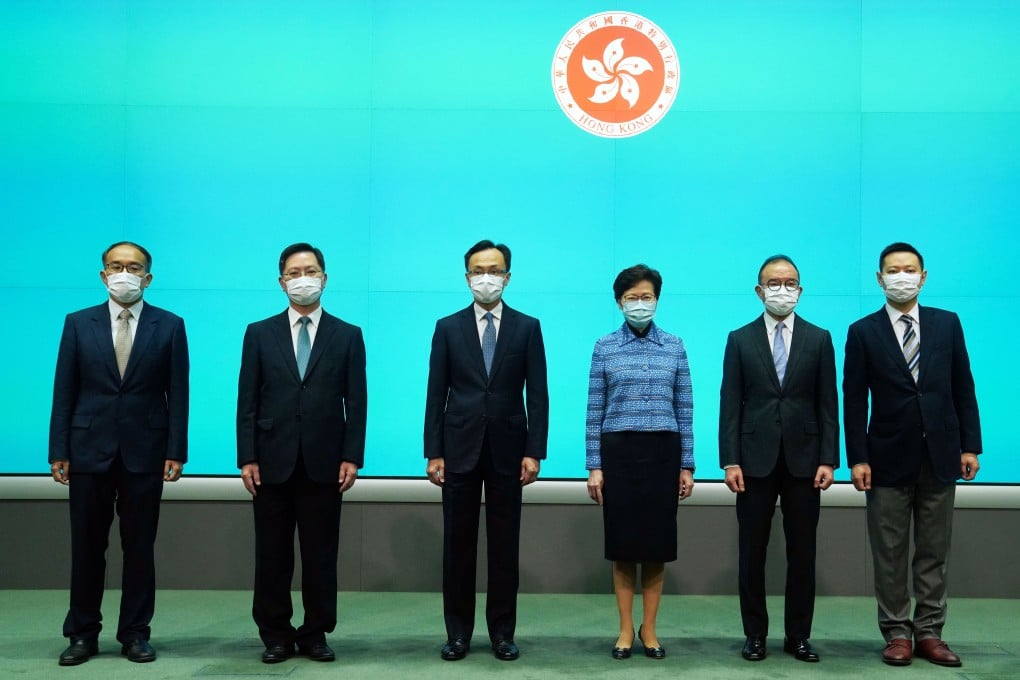Advertisement
Hong Kong leader Carrie Lam says cabinet reshuffle aimed at post-coronavirus recovery
- Central government appoints new secretaries for technology, financial services, home affairs, mainland affairs and the civil service
- Carrie Lam denies tightening control over the civil service and relations with mainland China
Reading Time:4 minutes
Why you can trust SCMP

Hong Kong’s leader on Wednesday announced new ministerial roles for five principal officials and bid farewell to four others leaving her administration, in a major cabinet reshuffle that she said was required to meet the challenges ahead and rebuild the city after the ravages of the coronavirus pandemic.
Advertisement
Chief Executive Carrie Lam Cheng Yuet-ngor dismissed the idea of the reshuffle being due since last year’s social unrest, and denied she was tightening control over a civil service whose members might support anti-government protests.
As the newly appointed officials pledged to rejuvenate Hong Kong in areas such as technology, finance, culture and sports, Lam expressed confidence in their abilities, while insisting the reassignment of the mainland affairs minister in particular was not linked to the ongoing political row over Beijing’s supervision of the city.
Patrick Nip Tak-kuen is now civil service chief after being replaced as secretary for constitutional and mainland affairs by former director of immigration Erick Tsang Kwok-wai.
Nip was at the centre of the controversy over statements on the remit of Beijing’s liaison office and the Hong Kong and Macau Affairs Office (HKMAO), which were accused of interfering in the city’s internal affairs when they called out opposition lawmakers for blocking the work of the legislature with filibustering.
Advertisement
Lam said his reassignment was unrelated, and the new tasks facing Nip, who joined the government as an administrative officer in 1986, did not include disciplining civil servants.

Advertisement